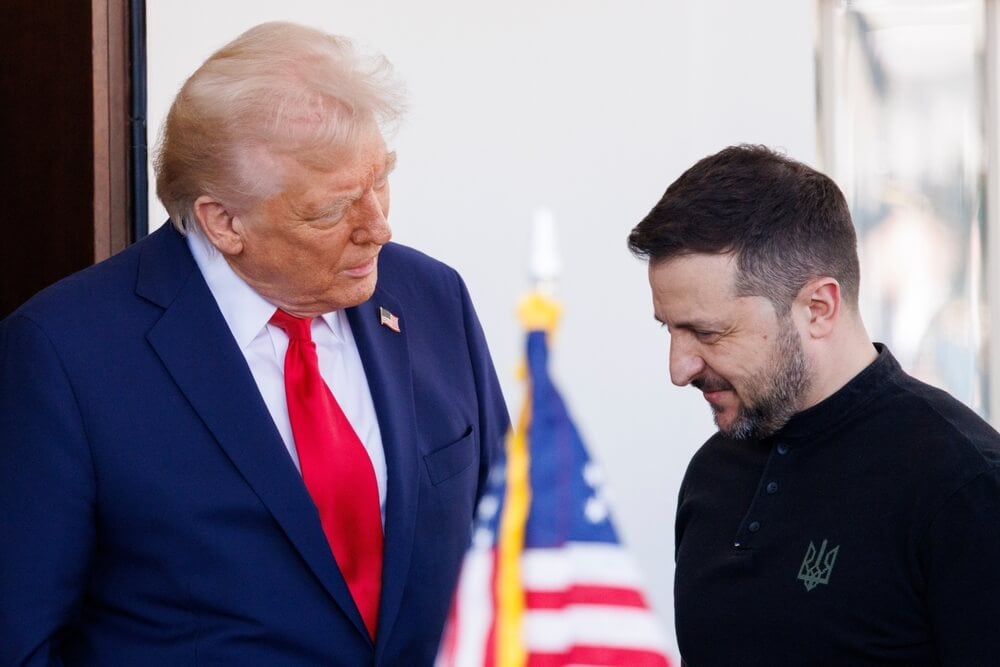The Russian-Ukrainian war started escalating significantly last week, paradoxically cheered on by social media.
It all began with the leaks of the 4 July conversation between Presidents Trump and Zelenskyy, during which the U.S. leader reportedly either urged or proposed intensified strikes on Moscow and St. Petersburg or encouraged Ukraine to launch an offensive.
Publicly, Trump’s administration declined the narrative and even set a 50-day deadline for Moscow to reach a ceasefire or face sanctions.
Social media exploded with cheers, especially as arms shipments resumed and more Patriot air defence systems were promised. Moscow responded by unleashing its own hawks of absurd threats.
Dmitry Medvedev, former Russian president, declared that Moscow should initiate pre-emptive strikes if it perceives the West as intensifying what he termed "its full-scale war against Russia."
Maria Zakharova, a spokeswoman for the Russian Foreign Ministry, accused the collective West of sending Kyiv "a signal to ... abandon the peace process."
While such statements from Russian spokespeople have become commonplace during the full-scale invasion, China's statements should be taken more seriously.
Chinese leader Xi Jinping met with Russian Foreign Minister Sergei Lavrov last Tuesday and stated that trust between China and Russia had “deepened” and the two states were “setting a model for a new type of international relations.”
This comes after China's strong statement on 4 July that Beijing cannot accept Russia losing its war against Ukraine.
Meanwhile, China has ceased supplying drone components to Ukraine and now exclusively exports to Russia, said German Major General Christian Freuding.
"Right now, the situation is that China is effectively exporting solely to Russia, while Ukraine has been shut out of this market," Freuding said on 19 July after mentioning that Germany predicted that Russia will be able to simultaneously launch up to 2,000 drones against Ukraine.
The West embraces Russia's challenge
The West has fully embraced Russia's challenge, diving into a fierce competition for the most sensational media headlines.
U.S. Army Europe and Africa commander Gen. Christopher Donahue issued a widely circulated threat, vowing to “take that down from the ground” Russia’s heavily fortified Kaliningrad Oblast faster than ever before.
Last week, General Alexus Hrynkiewicz, commander-in-chief of the U.S. European Command, warned that the EU and the U.S. have just 18 months to prepare for a potential global military conflict with China and Russia.
Is the West now trying to demonstrate strength, just like Russia, by flexing its muscles through the media?
While engaging in escalating rhetoric, Europe is exploring the option of procuring weapons from the United States for Ukraine.
The first air defence Patriot battery bought by Germany will arrive in Ukraine no earlier than half a year
This proposal was promptly declined by France, Italy (citing financial constraints), the Czech Republic, and other nations that either maintain their own military aid programmes or are unwilling to provide assistance to Kyiv. Instead, it was actively supported by Germany and the UK.
“We are doing this in our own interests,” Merz said, trying to lead the initiative. “This will help Ukraine to defend itself against Russia’s bombing campaign of terror. This is the only way to increase the pressure on Moscow to finally negotiate peace. Finally, we are showing that we are pulling in the same direction as security policy partners.”
Right now, it is not clear which American weapons Berlin and London will buy for Kyiv, but the first air defence Patriot battery bought by Germany will arrive in Ukraine no earlier than half a year.
From media theatrics to real-world consequences
This media-driven escalation is beginning to push the conflict beyond Ukraine’s borders. The key question now is whether it will move out of the realm of media theatrics into real-world consequences.
What’s increasingly apparent is Moscow’s intent to position itself as the most deranged actor, eager to prove that it’s willing to go all the way.
 Preventive diplomacy and efforts to maintain the status quo have proven ineffective, as will escalating rhetoric - Donald Trump with Volodymyr Zelenskyy
Preventive diplomacy and efforts to maintain the status quo have proven ineffective, as will escalating rhetoric - Donald Trump with Volodymyr Zelenskyy
Russia has resumed talks about its nuclear arsenal and doctrine, reviving threats that had previously been tempered by China.
For the first time since last September, sources linked to Ukraine's intelligence indicate these threats are being serious. However, why would Moscow risk provoking a direct NATO confrontation when it could pursue mediation instead?
One can easily imagine a scenario where, if the U.S. continues supplying weapons via European partners and Ukraine eventually strikes Moscow with a Tomahawk or another American-made weapon, Russia may choose to retaliate through its proxies, such as North Korea, not at Ukraine, but further west.
Preventive diplomacy and efforts to maintain the status quo have proven ineffective, as will escalating rhetoric.
We are all captives of a volatile information landscape and political climate, where traditional politics and media no longer win, and emerging platforms blur the lines between Hollywood, blogging, and reality.
The much-discussed World War III could be the swiftest and most devastating conflict in human history, fuelled by nuclear arsenals and chaotic escalations that began surging last week.
Yet, there remains an opportunity to avert catastrophe. To paraphrase Donald Trump, every “park” needs at least one responsible adult.